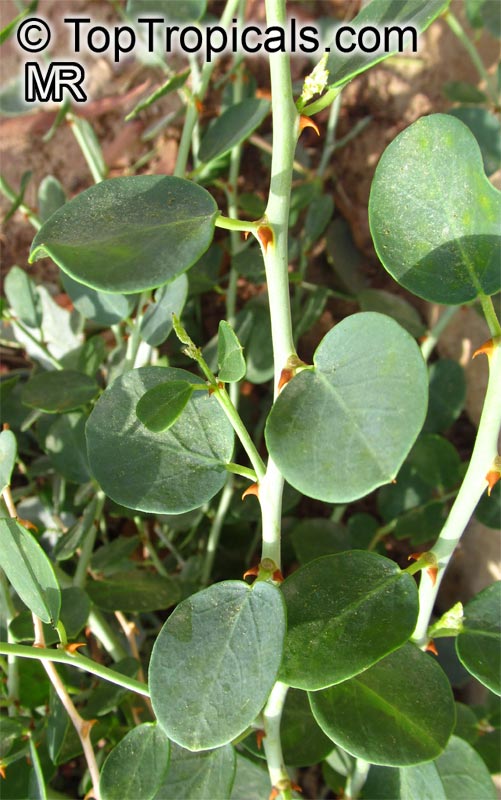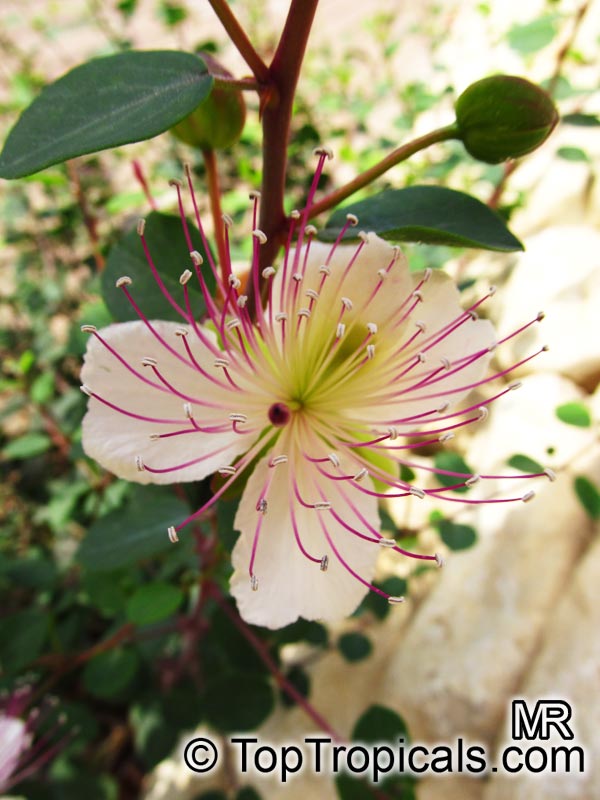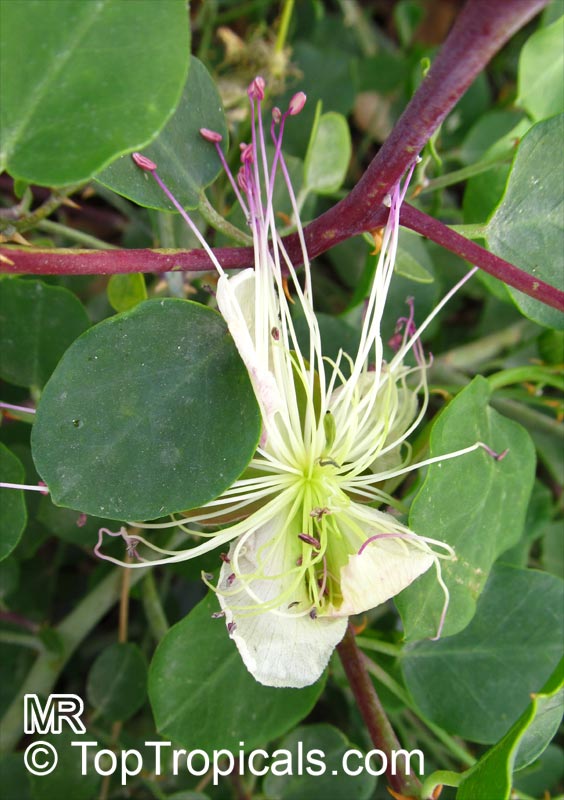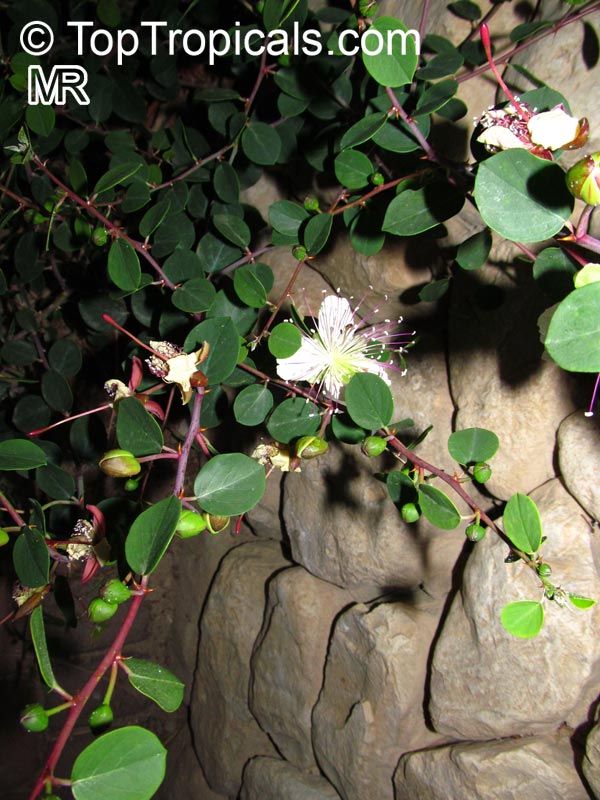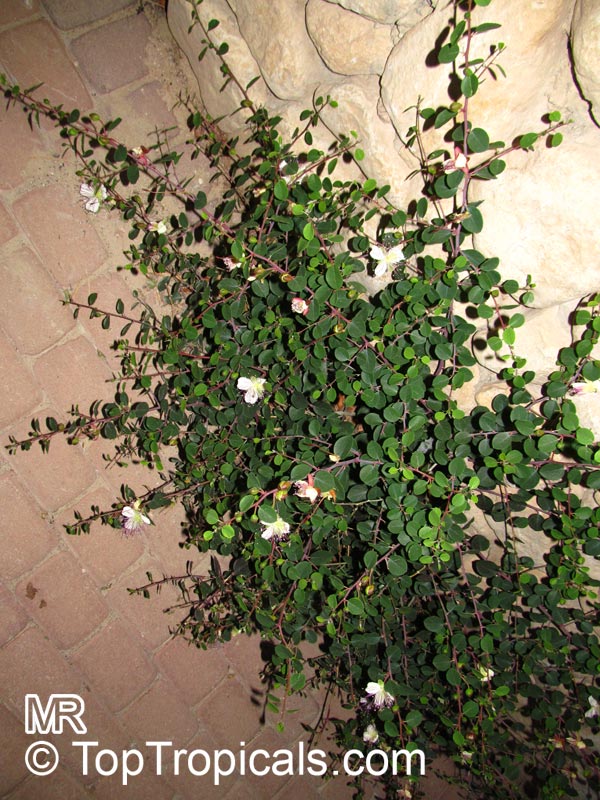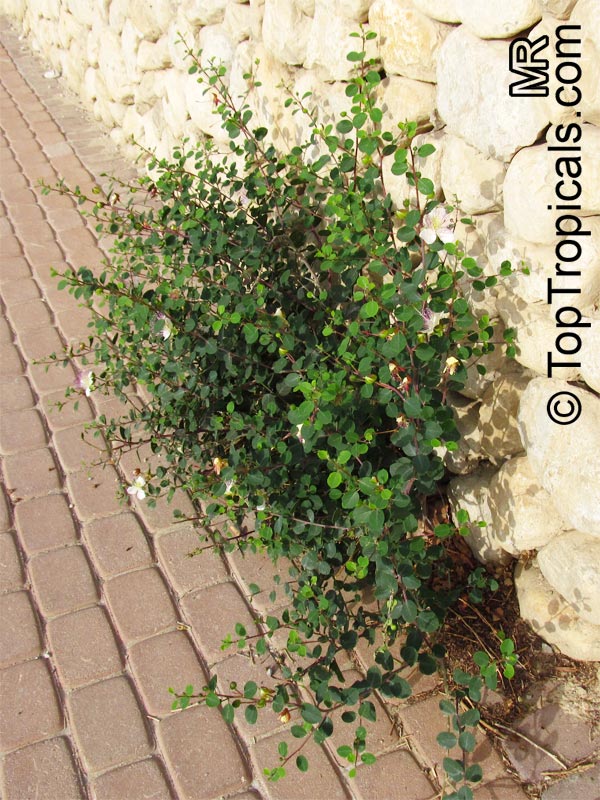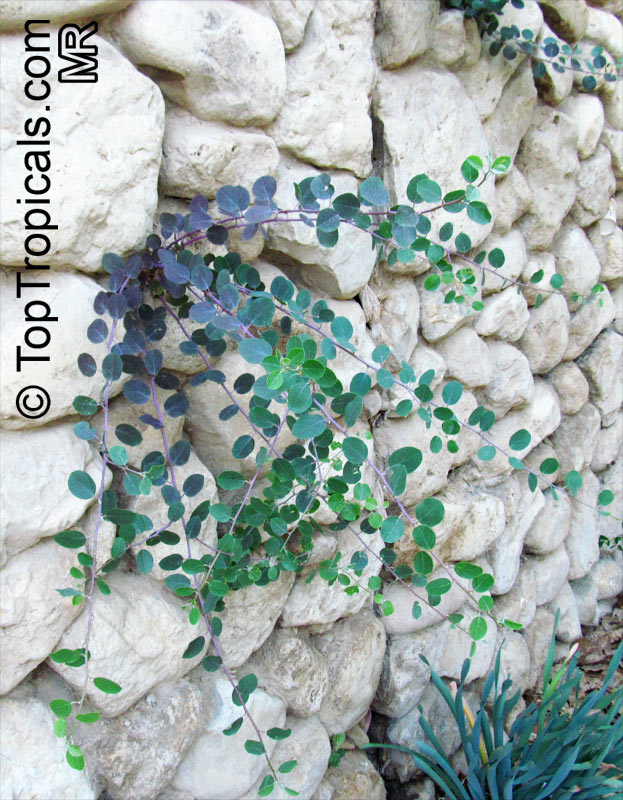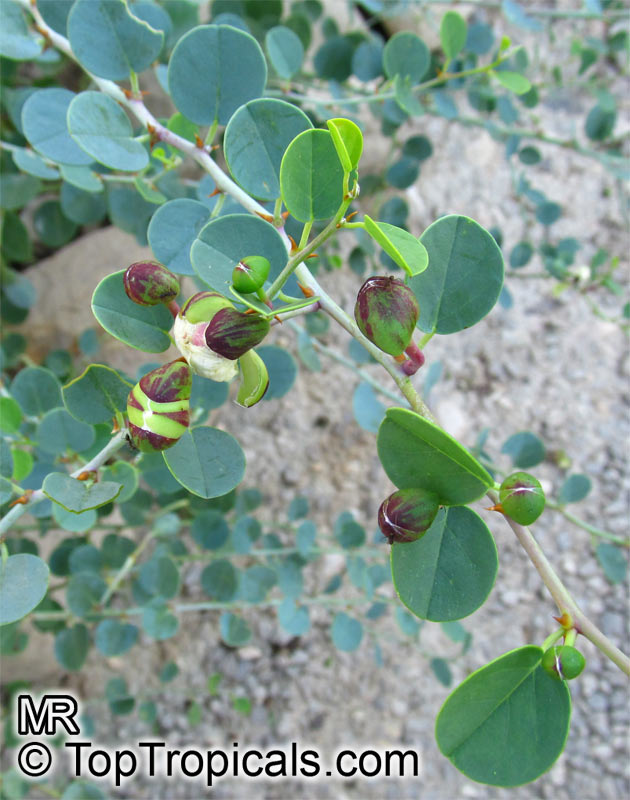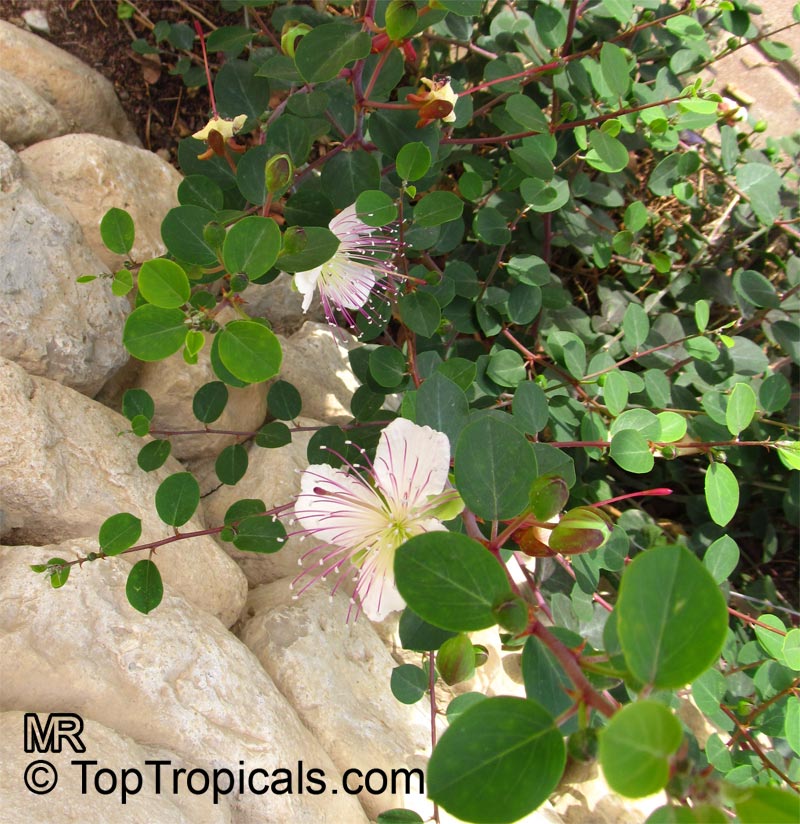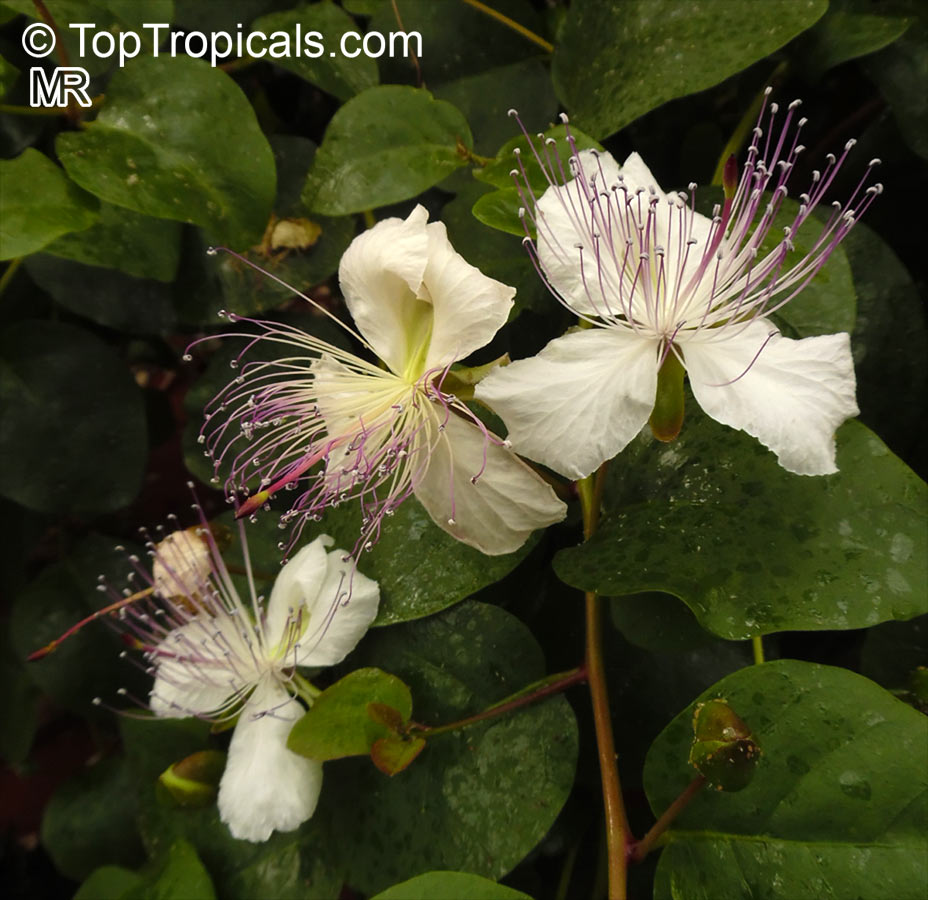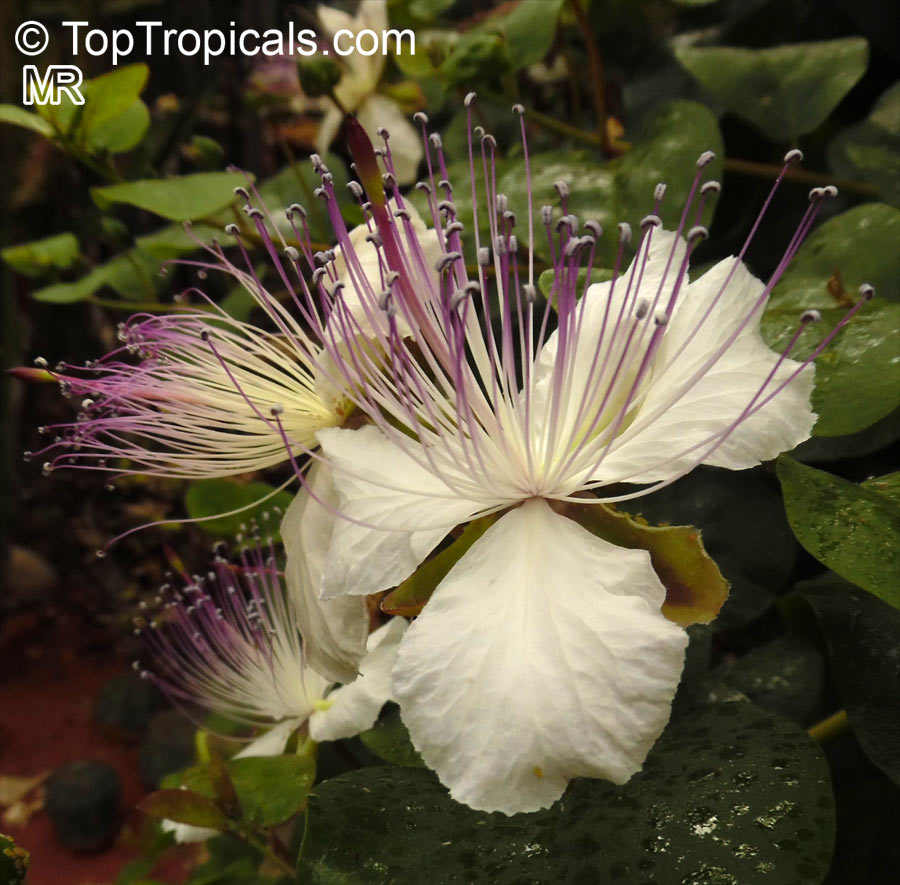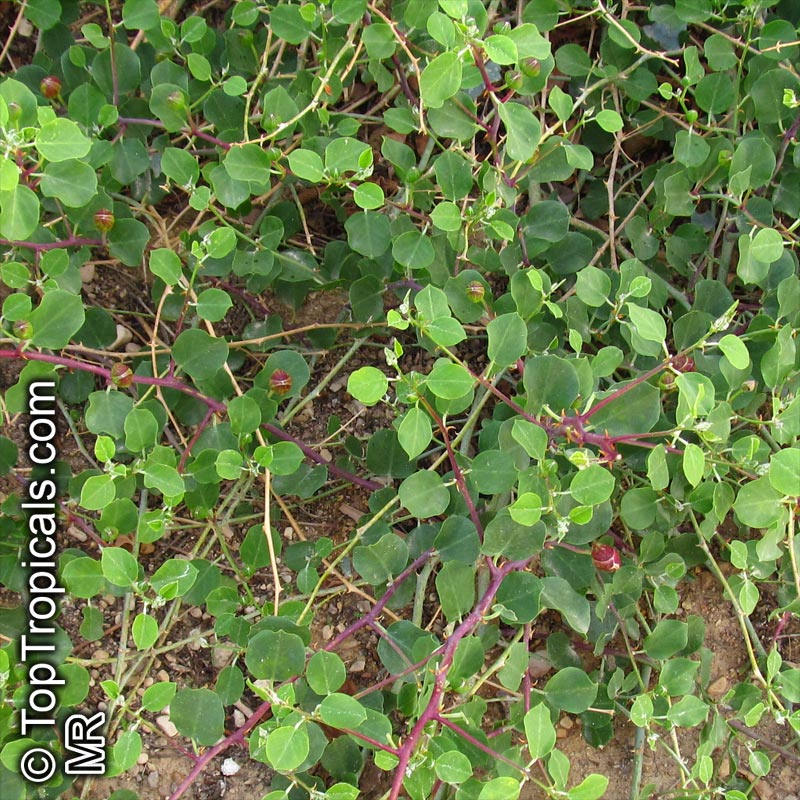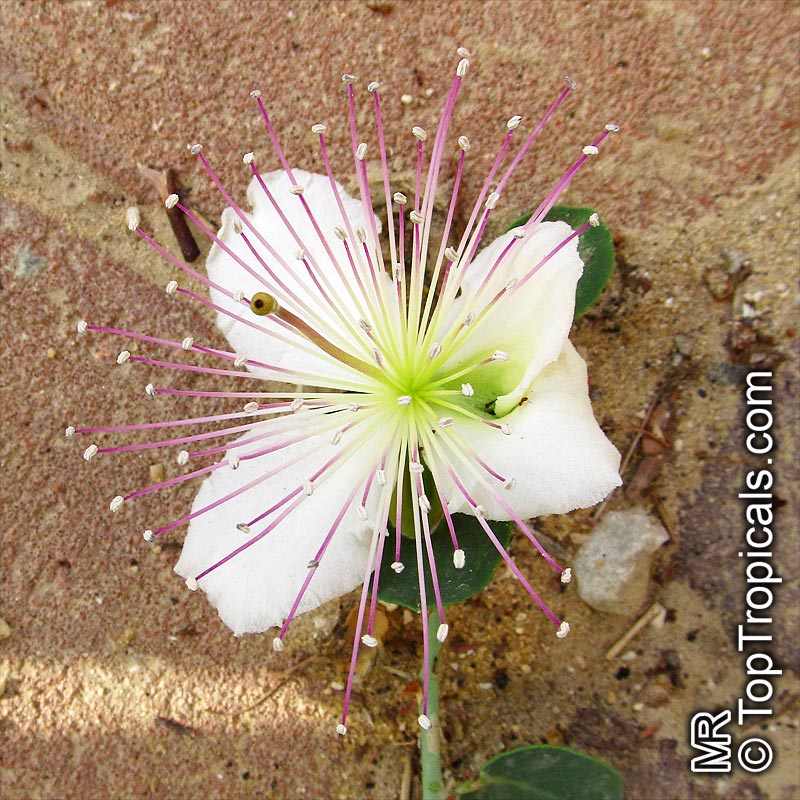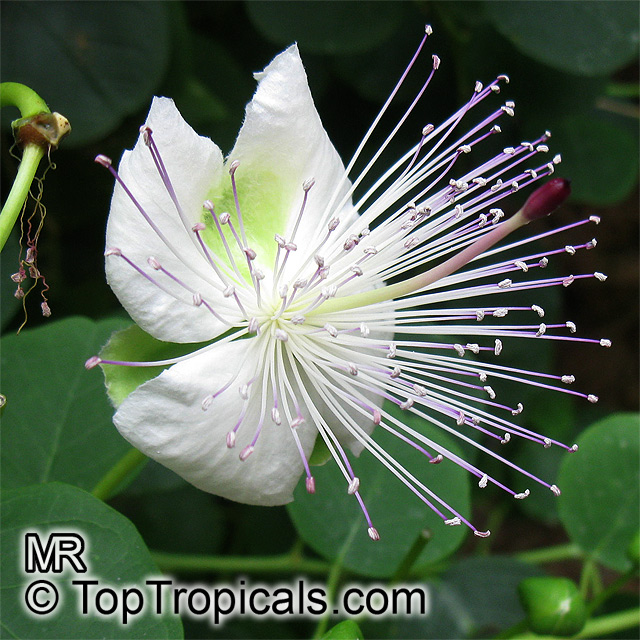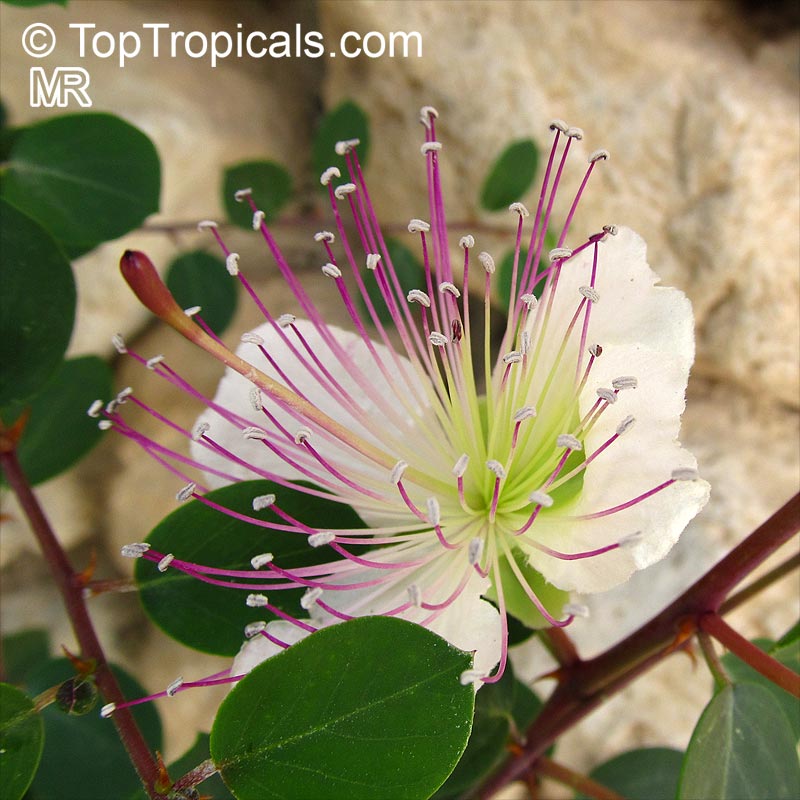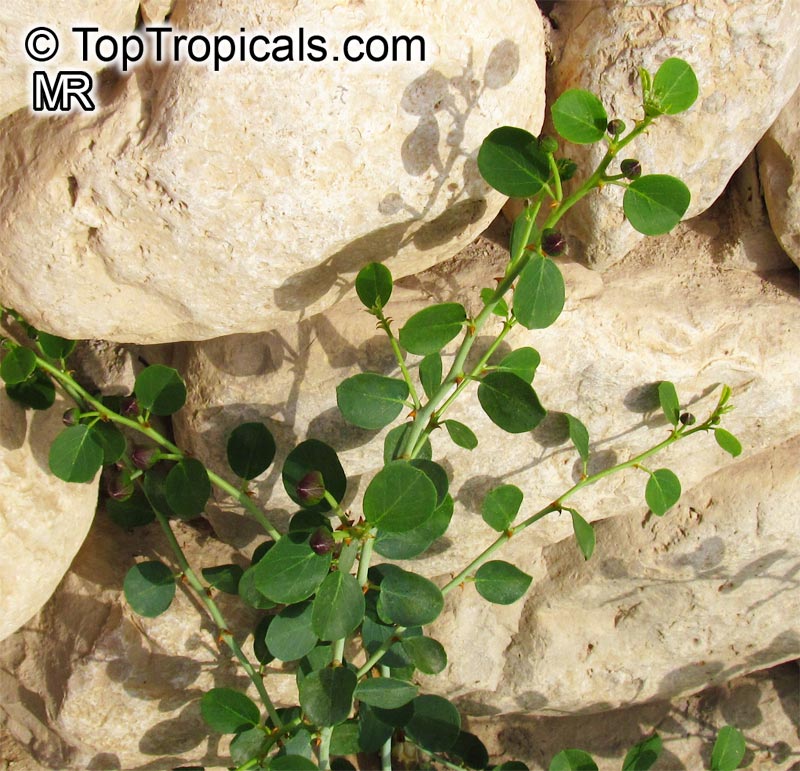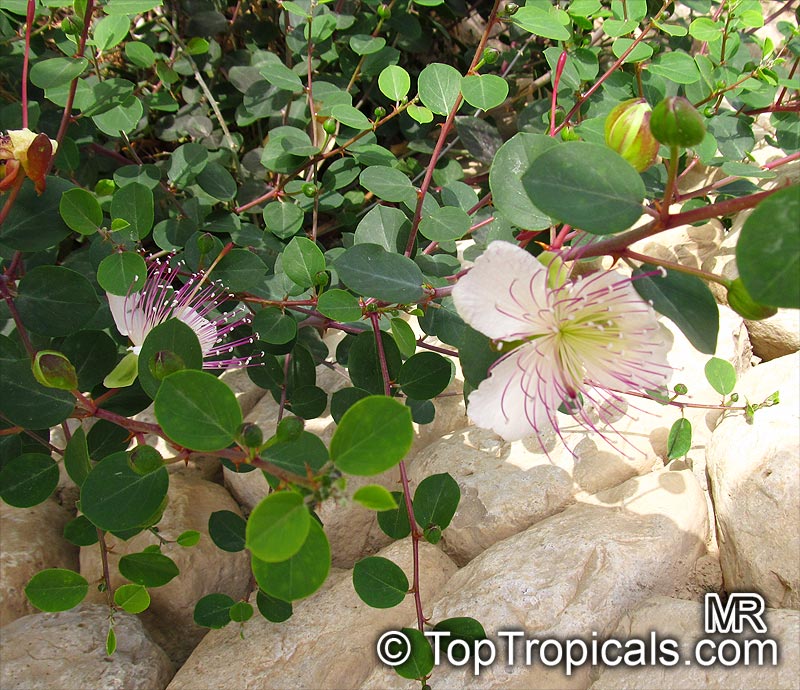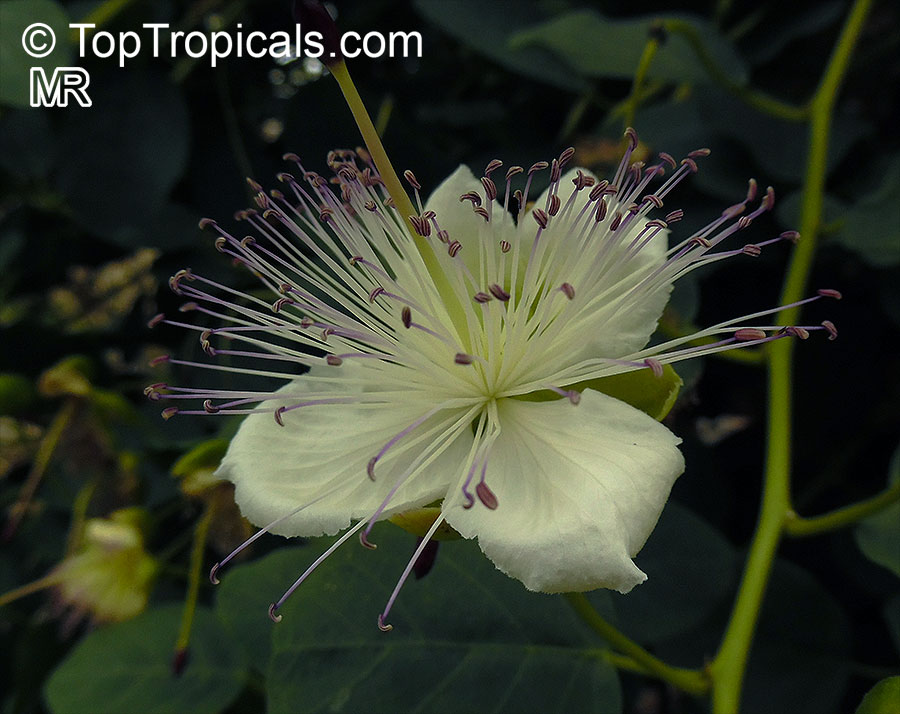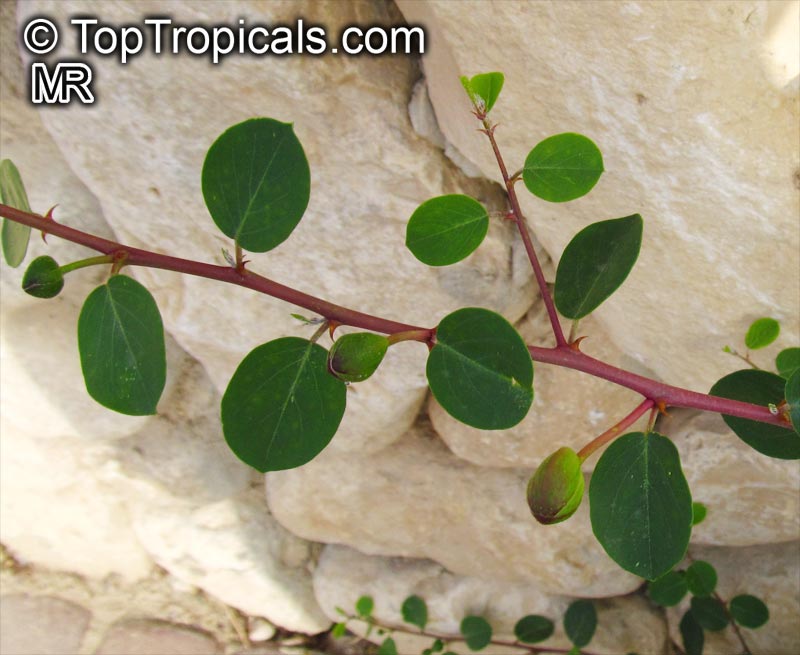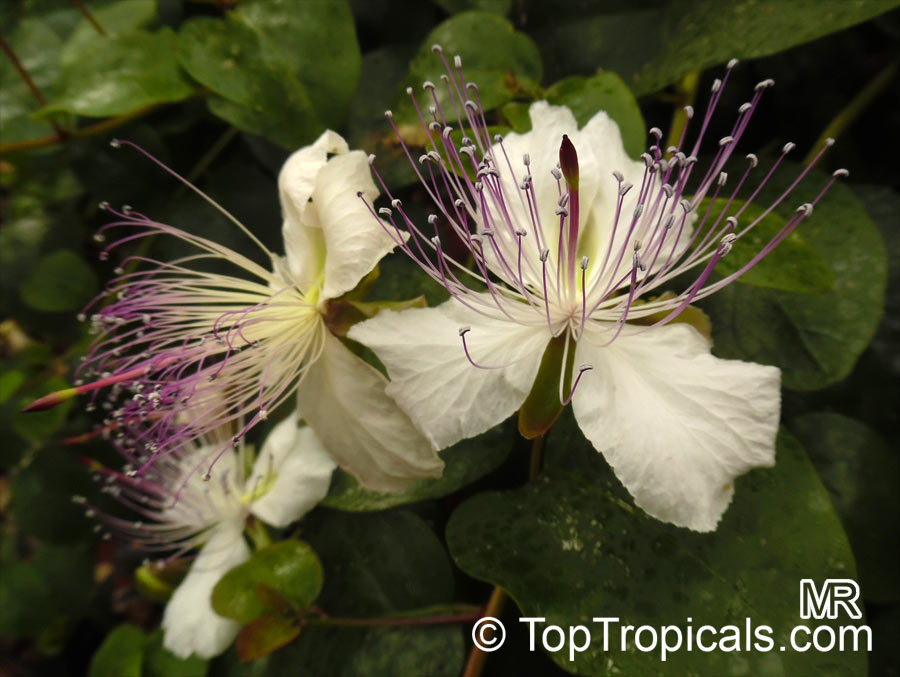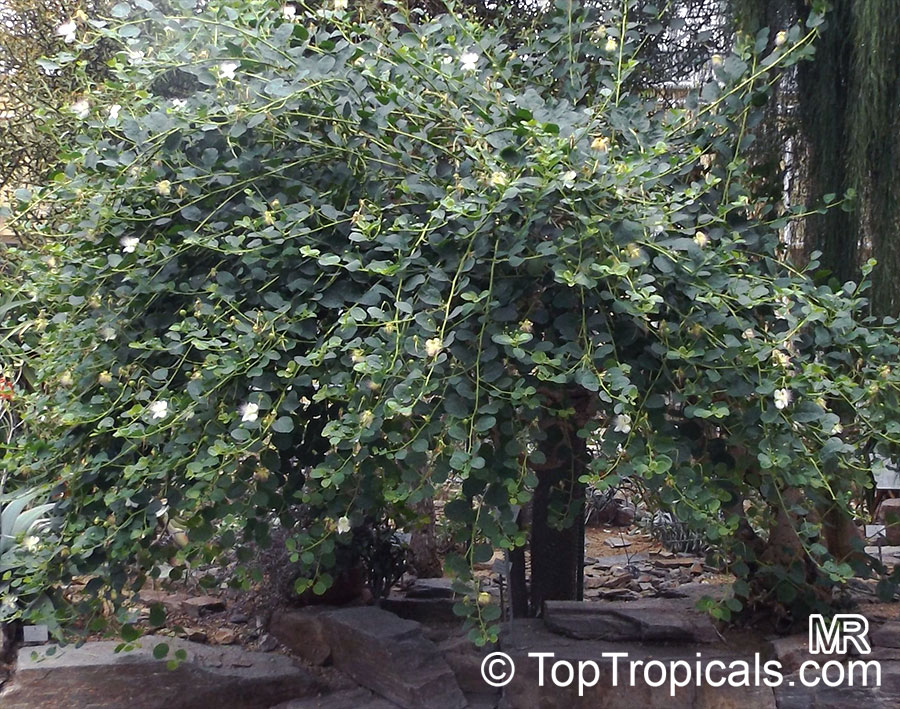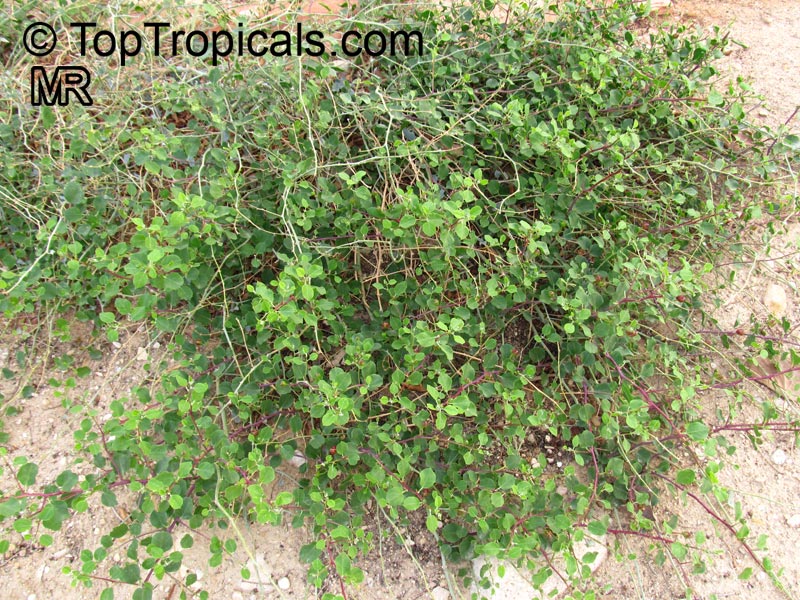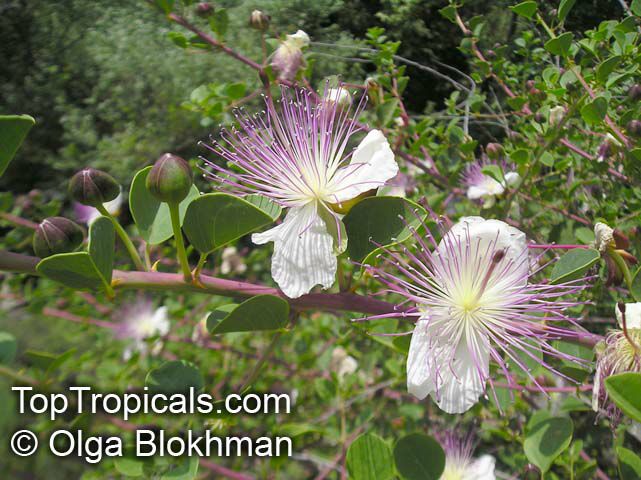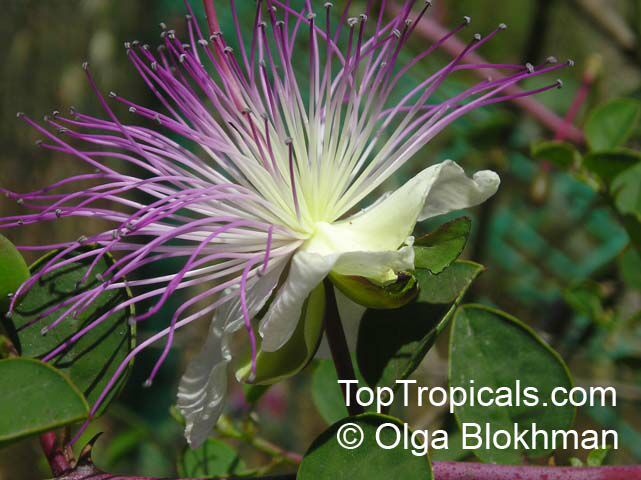Capparis spinosa (Caper)
Botanical name: Capparis spinosa
Common name: Caper
Family: Capparaceae
Origin: Egypt, Middle East and Asia










When grown in suitable climates, Capparis spinosa requires full sun and moderate water. Established plants are very drought tolerant and can survive extended dry or hot periods due to their deep, extensive root systems. In cold regions, Capparis spinosa is best grown in large pots which can be moved indoors or onto a sheltered porch during cold snaps. The plant's optimum soil type should be well-draining and (preferably) consisting of a base of coarser materials such as clay, gravel or sand. To maintain a reasonable hedge or groundcover, plants should be clipped every two to three months.
Capparis spinosa has small, pink or white flowers which attract both butterflies and hummingbirds. While not the most showy plant, it works well as a low-growing spiny hedge or groundcover, growing only 12 to 24 inches tall. It is also edible and offers ethnomedical qualities, as well as anti-inflammatory, antimicrobial and antioxidant properties. While an excellent alternative to more traditional hedge plants, Capparis spinosa can produce between one and nine fruits each year. While not very large (about the size of an olive), the fruits are full of flavor and have unique polyphenols that can make them an alternative to traditional spices. Capparis spinosa fruits offer a wide range of health benefits including antibacterial activity, relief from chronic diseases like diabetes and heart issues, and anticancer properties. Additionally, consuming some of the fruits have been linked to improved metabolism, better digestion and increased immunity.
Capers of commerce are immature flower buds which have been pickled in vinegar or preserved in granular salt. Semi-mature fruits (caperberries) and young shoots with small leaves may also be pickled for use as a condiment. Smaller buds (both with less than one centimeter diameter) are considered more valuable than the larger (more than 1" diameter). Capers have a sharp piquant flavor and add pungency, a peculiar aroma and saltiness to comestibles such as pasta sauces, pizza, fish, meats and salads.
